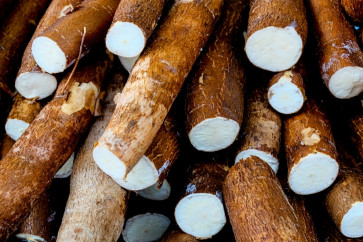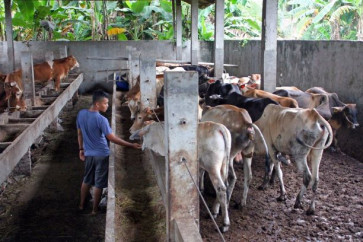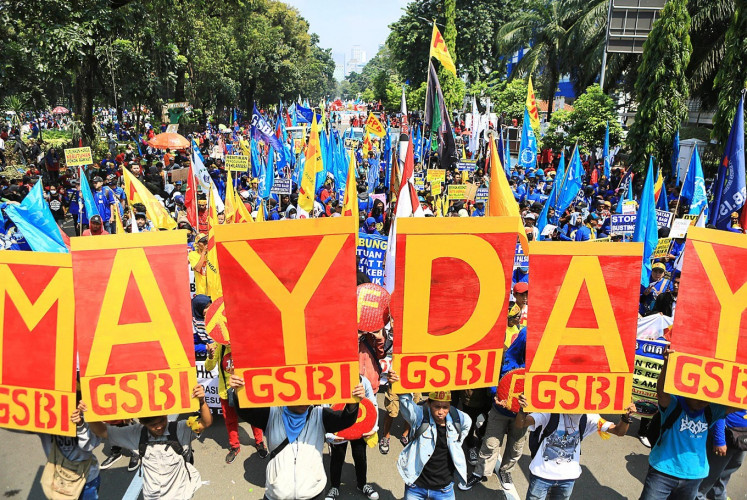Pertamina opens bidding for Jambaran-Tiung Biru
A subsidiary of state-owned oil and gas firm Pertamina, Pertamina EP Cepu, has opened a bidding round for engineering, procurement and construction (EPC) work for facilities at the Jambaran-Tiung Biru fields in Central Java
Change text size
Gift Premium Articles
to Anyone

A
subsidiary of state-owned oil and gas firm Pertamina, Pertamina EP Cepu, has opened a bidding round for engineering, procurement and construction (EPC) work for facilities at the Jambaran-Tiung Biru fields in Central Java.
According to an announcement made on Monday, participants interested in the gas processing facility project will be able to submit documents from Tuesday to Friday.
Based on the announcement, national companies, whether individual firms or a consortium, are allowed to participate in the tender.
Meanwhile, a foreign company can also join the tender if it is involved in a consortium led by a domestic or national company.
The bidder also has to be able to meet a minimum of 40 percent in domestic content, according to the announcement.
Based on the tender announcement, the project at the Jambaran-Tiung Biru fields will cover a gas processing facility with a minimum capacity of 70 million standard cubic feet per day (mmscfd).
The Jambaran gas field is located within the Cepu block, which is currently operated by ExxonMobil Indonesia's unit called ExxonMobil Cepu Limited (EMCL) that holds a 45 percent interest in the block.
The other 45 percent is held by Pertamina EP Cepu and the remaining 10 percent by the Cepu Block Cooperation Bodies, which consist of locally owned companies run by the administrations of Blora regency, Bojonegoro regency, the East Java provincial administration and Central Java provincial administration.
Meanwhile, Tiung Biru field is located inside Pertamina EP's operation area adjacent to the Cepu block. Pertamina EP and EMCL agreed to unitize both fields in September 2012.
Gas production from the Jambaran-Tiung Biru fields was initially expected to be on stream at the end of 2018. Under a new target, the fields are expected to start production in the second quarter of 2019.
The development has been delayed particularly because the fields failed to secure buyers for the gas. Unlike in oil projects, gas projects needs certainty on who will use and buy the gas because the commodity cannot be stored.
Under a current plan, Pertamina ' the parent company ' will absorb the gas and then deliver it to its buyers, including industries and state-owned electricity firm PT Perusahaan Listrik Negara.
'In line with the government's policy, we will prioritize domestic needs because there are estimations that we will have a shortage of gas in the future,' Pertamina president director Dwi Soetjipto has said.
The gas will be delivered through the trans-Java pipeline that will connect West Java to East Java. Pertamina, through its subsidiary PT Pertamina Gas (Pertagas), is currently working on the development of a section of the trans-Java pipeline, namely the Gresik-Semarang section.
The other section connecting Semarang-Cirebon is currently being worked on by PT Rekayasa Industri. Following several years of delays, Rekayasa Industri has decided to establish a cooperation with Pertagas to develop the Semarang-Cirebon section.
Pertamina and its partner ExxonMobil have recently begun the delivery of crude oil from Banyu Urip, one of the oil fields in the Cepu oil block, to the country's major refineries.
Banyu Urip is currently the backbone of national production. Crude oil output from the field is expected to increase from 80,000 barrels of oil per day (bopd) to 205,000 bopd, or around 25 percent of the targeted national output of 825,000 bopd.
Banyu Urip's plan of development (POD) was actually approved in 2006 and was due for completion in 2010. However, a number of problems caused delays in the project. Changes in planning mainly contributed to the delays.









